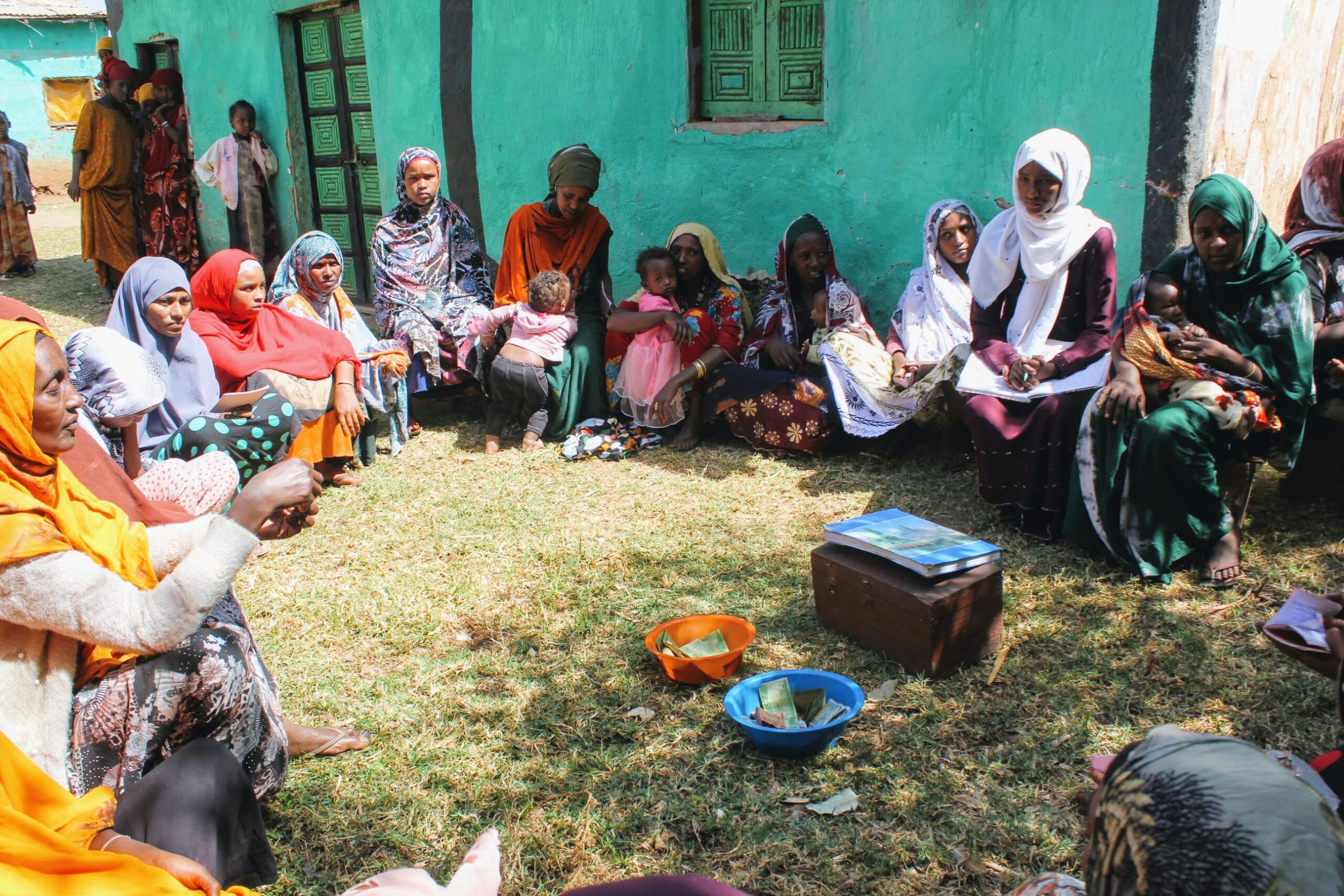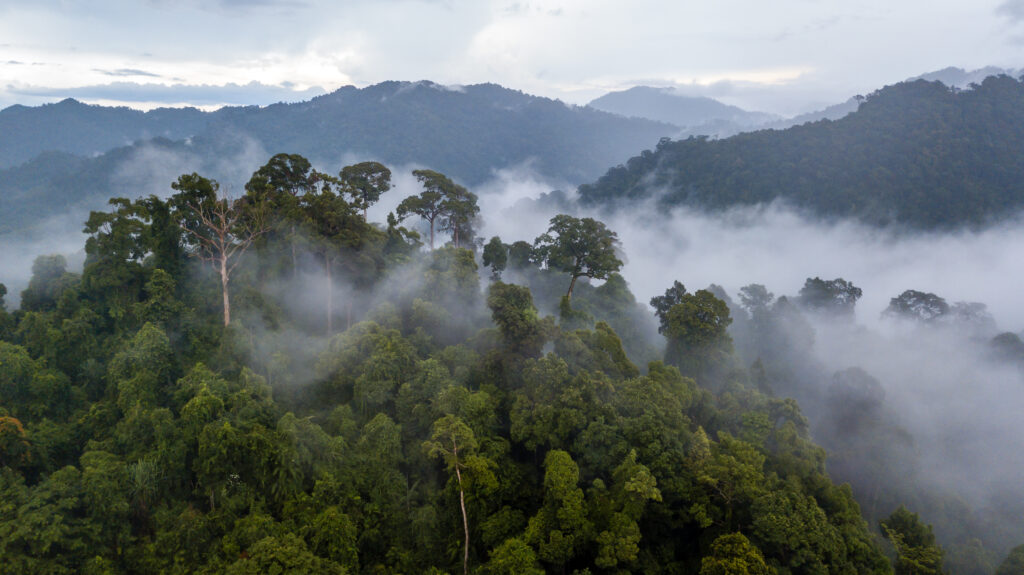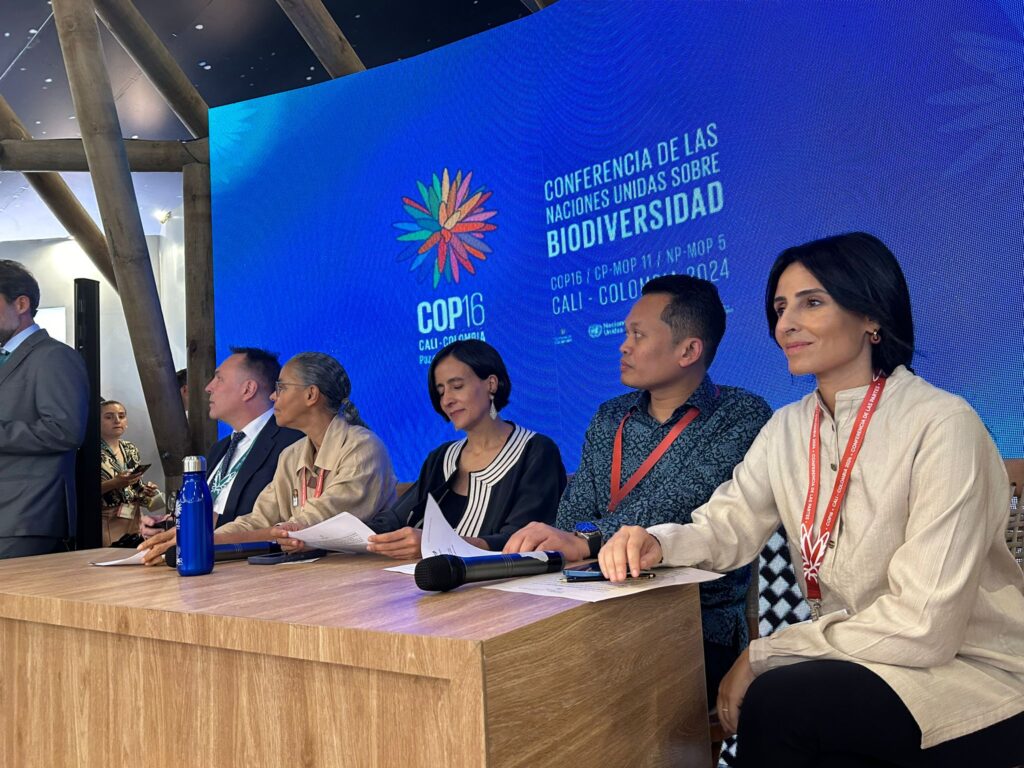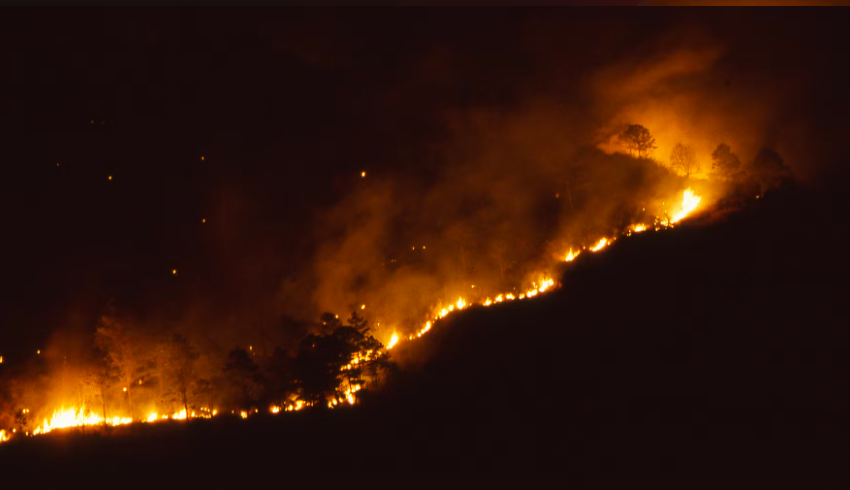
Women’s Groups in Ethiopia Challenge Gender Roles Through Economic Communities
Six groups of women in the Bale region of Ethiopia, where Forests of the World operates, have gained greater independence through savings and loan communities. These economic groups provide women with health insurance and opportunities to generate their own income — a privilege rarely afforded to women in the area.
The sun beats down on a small village in the southwestern Bale region of Ethiopia. In the shade of the trees, a group of women sits in a circle, collecting a portion of their earnings from the past two weeks. Twice a month, they gather in this very spot to manage their shared savings.
The money is divided into two bowls placed in the center of the circle. In one bowl is their health insurance fund, which receives about a quarter of the total savings. This fund covers hospital expenses if a woman needs to give birth and cannot afford the costs herself, or if another member requires financial support for medical or other urgent needs.
The second bowl holds the savings for their businesses. This pool of money funds joint investments, such as building a new shared chicken coop, which benefits all members. It also serves as a rotating loan fund, allowing women to borrow money to purchase their own chickens, sheep, or goats. This enables them to earn an income by selling eggs, wool, or milk. Others use the loans to buy grains or seeds for trade. The loan fund also helps some women engage in coffee production or other projects that provide income and strengthen their economic position.
“They send a message to the world that women in Ethiopia can collectively create their own income and make long-term investments, even in a society that is not designed to favor them.”
In the areas of Ethiopia where Forests of the World operates, there are six women’s groups, each with about 25 members. The youngest members are 19 years old, while the oldest are around 70. How much money each woman is allowed to borrow in a given month depends on how she plans to invest it and what the group collectively calculates her business expenses to be. The price of membership varies between groups but typically ranges from 20 to 45 Ethiopian birr (approximately 2.50–6 Danish kroner) paid into the shared savings fund twice a month.
At the end of the meeting, the group’s collective savings are placed in a cash box secured with two locks. Two women are entrusted with a key each, while a third woman holds the box itself. This system ensures that the box can only be opened when the group gathers again.

Women Want to Earn Their Own Income
It is difficult for women in Ethiopia to achieve the same level of independence and resilience as men because they lack the same opportunities to generate income.
Women’s societal role is to cook for their families, care for children, and fetch water. Many also assist in harvesting crops. Meanwhile, men typically own the land used for farming or agroforestry, including coffee production. Even though many of the women in these communities are married, they see earning their own income as essential. For widows in particular, being able to support themselves is critical.

The six women’s groups have enabled approximately 150 women in Forests of the World’s project areas in the Bale region to achieve greater economic freedom and independence. These groups send a clear message: Ethiopian women can work together to generate their own income and make long-term investments, despite the structural disadvantages they face in society.




